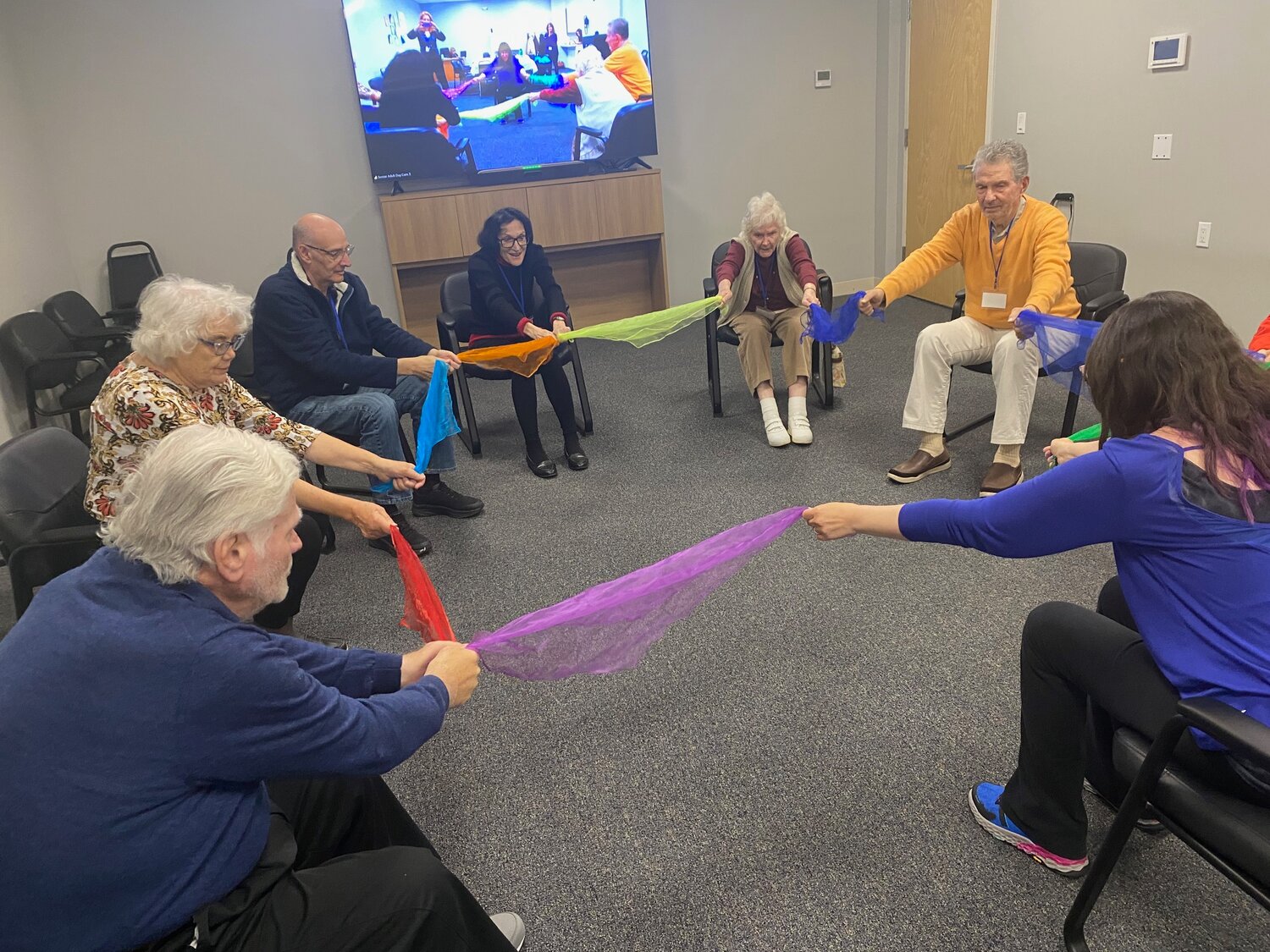JCC to show late film star Robin Williams’ documentary on dementia
Film highlights Williams’ battle with Lewy body disorder
To highlight one form of dementia, the Friedberg JCC in Oceanside will host a screening of the film “Spark,” whose subject is the late actor Robin Williams, on Nov. 13 at 4 p.m.
The film documents Williams’ battle with Lewy body dementia, a brain disorder that can result in problems with mood, behavior, thinking and movement. “Spark” highlights the key messages that can enhance learning and understanding of the disorder and other forms of dementia, improve diagnosis, and offer families a way to feel connected to resources and support.
An autopsy performed on the Oscar-winning actor and comedian, who died by suicide on Aug. 11, 2014, at age 63, revealed that Lewy body dementia had been attacking an entire area of his brain, and doctors said it was one of the worst forms of the disorder they had seen.
The documentary takes a deeper dive into Williams’ life as he suffered with the effects of the dementia. In his last film role, “Night at the Museum: Secret of the Tomb,” he had difficulty with his lines. The actor and his wife, Susan, struggled to find answers, as he got caught more and more often in paranoia loops and psychotic behavior, which eventually led to his suicide.
Although not as well known as Alzheimer’s, Lewy body dementia is not rare, affecting more than a million Americans and affecting a different part of the brain with protein buildup. Symptoms of Alzheimer’s often start with memory loss, but LBD symptoms begin with psychotic behavior and problems with thinking and mood. Oftentimes, those with the disorder will start feeling depressed and want to socially isolate themselves. They also become paranoid and lose sleep, which will often make the disease progress faster.
After being diagnosed with this form of dementia, which often affects those in their 50s, most people live only five to eight years longer.
During the Nov. 13 screening, a panel of experts will discuss topics relating to the film, including the impact of LBD, and dementia in general, on the family and caregivers. Guest speakers will include Gloria LeBeaux, director of social services at the Friedberg JCC; Dr. Mariel Deutsch, a neurologist and memory specialist; and Lauren Vlachos, executive director of the Alzheimer’s Disease Resource Center, in East Islip. Before the film’s screening, the Friedberg JCC are hosting an open hose to welcome to welcome the community to its Center for Brain Health in the Sunrise Association building next to the JCC.
“We support both the individual with dementia as well as the caregiver,” Le-Beaux said. “We run a three-day-a-week early stage dementia program, for individuals. That combines brain stimulation, socialization, physical activity, and a chance to talk about their diagnosis together because I think the most difficult part of this is the stigma that people themselves experience having dementia and the opportunity to talk about it with others who are also going through the same progressive changes that they might be experiencing and being able to get the support from their own.”
Dr. Deutsch, who runs a private practice in Merrick, Neurology MIND Care, specializes in working with people with dementia. She has done several volunteer lectures for The Bristal Assisted Living, including a recent talk on the importance of getting a comprehensive evaluation for dementia, and was invited by Julie Wexler, The Bristal’s business development director, to be on the panel.
“Dementia with Lewy bodies is actually the second-most-common neurodegenerative cause, meaning that the brain is degenerating out of proportion to just normal aging and then there’s proteins being deposited in the brain that aren’t supposed to be there,” Deutsch explained. “I think a lot of people have never heard of it, or at least, maybe they only started to hear about it because Robin Williams’ underlying conditions and cause of death came to light. The goal is always to get people to understand what conditions are out there, and sometimes a little extra knowledge and education can push them to get the thorough evaluation that is warranted.”
The Alzheimer’s Disease Resource Center is focused on supporting caregivers, providing education and outreach to the community so that people can be prepared, and then supporting them through the journey.
“By bringing the movie to the JCC in Oceanside, we’re trying to educate the community,” Vlachos said. “Things have come a long way in the last 10 years, and the movie really is starting that conversation, getting people to recognize there are different forms of dementia, trying to get

 58.0°,
Partly Cloudy
58.0°,
Partly Cloudy 




